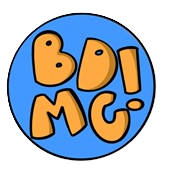Tribute to the Band’s Robbie Robertson
“The Weight,” “The Night They Drove Old Dixie Down,” and “Don’t Do It” are all songs that come to mind when musicians mention Robbie Robertson. Roberton’s timeless lyrics take listeners on a journey through the lives of ordinary Americans, telling stories of heartbreak, fears, defeat, and victory. Furthermore, his standing amongst the guitar greats is a testament to his contributions to The Band and music history. These songs live on 50 years later and continually inspire new generations. On Wednesday, August 9, 2023, this Canadian hero, Robbie Roberston, died in Los Angeles, CA. Although he is no longer with us, his legacy and lyrics continue to inspire musicians, including myself.
Robertson’s rise to fame began in the summer of 1965 when he met the young Bob Dylan in New York. That summer, Robertson agreed to perform two shows with Dylan as long as his friend, Levon Helm, could sit in on the drums. Although this tour provided unimaginable exposure for the rising stars, it received mixed receptions worldwide. At the time, Dylan was famous for his old-school folk sound, limited to his voice, harmonica, and acoustic guitar. When he took the stage with a band, concertgoers thought Dylan was shooting his shot at being a rock star. This transition brought sometimes violent receptions and very critical reviews.
Additionally, this tour brought together Garth Hudson, Richard Manuel, and Rick Danko, all friends of Robertson and Helm. Once this tour came and went, Robertson and friends found themselves recording with Dylan in West Saugerties, NY. During these sessions, the group recorded the music that would appear on The Basement Tapes. The sound of these songs had an electric-folky ring but can also be described as disorganized and discombobulated. It would be these tunes that would set the groundwork for the sound “The Band” would pursue.
At the time, Robertson wrote songs recorded alongside Levon and company for the first time, minus Dylan. Shortly after that, they were contacted by Capitol Records to release these songs on their label. As a result, the band adopted the name “The Band” and released their first album, “Music From Big Pink,” in August 1968, paying homage to the pink house Dylan brought them to in West Saugerties. On this album, Robertson wrote “Chest Fever,” “Caledonia Mission,” and “The Weight.” With the Band, Robertson penned the lyrics for other classics like “The Night They Drove Old Dixie Down,” which explores a man’s life in the South after the Confederate defeat, and “Up on Cripple Creek.” The Band played some of America’s most famous stages, including the Woodstock Music & Arts Festival, The Ed Sullivan Show, and the Winterland Ballroom.
By 1976, Robertson had achieved national fame, and it started to become too much. As the fall of 1976 approached, Robertson proposed the Band stop touring and cap the era off with a grand finale. And with that, the concept for The Last Waltz was born. This grand finale featured the band hosting a Thanksgiving gala while they performed their favorite songs alongside their favorite musicians. The Last Waltz would become the Band’s most well-known performance featuring sit-ins from Bob Dylan, Eric Clapton, and Neil Young. Although this was supposed to be the last show, the Band reunited in the 1980s without Robertson.
Personally, Robbie Robertson’s contributions to the Band have been influential to me for a long time. As a young child, my father would spin The Best of the Band vinyl for me and play their songs in the car all the time. Through those listenings, their songs became my early impressions of rock and roll. And when I began playing guitar, “The Weight” was one of the first songs I learned, which I still play today. Robbie Robertson’s songwriting and technique have forever changed how I listen and play music and continues to do the same for others worldwide. Today, musicians commemorate Robertson’s life by covering his songs, continuing the timeless ripple effect they possessed 50 years ago.


